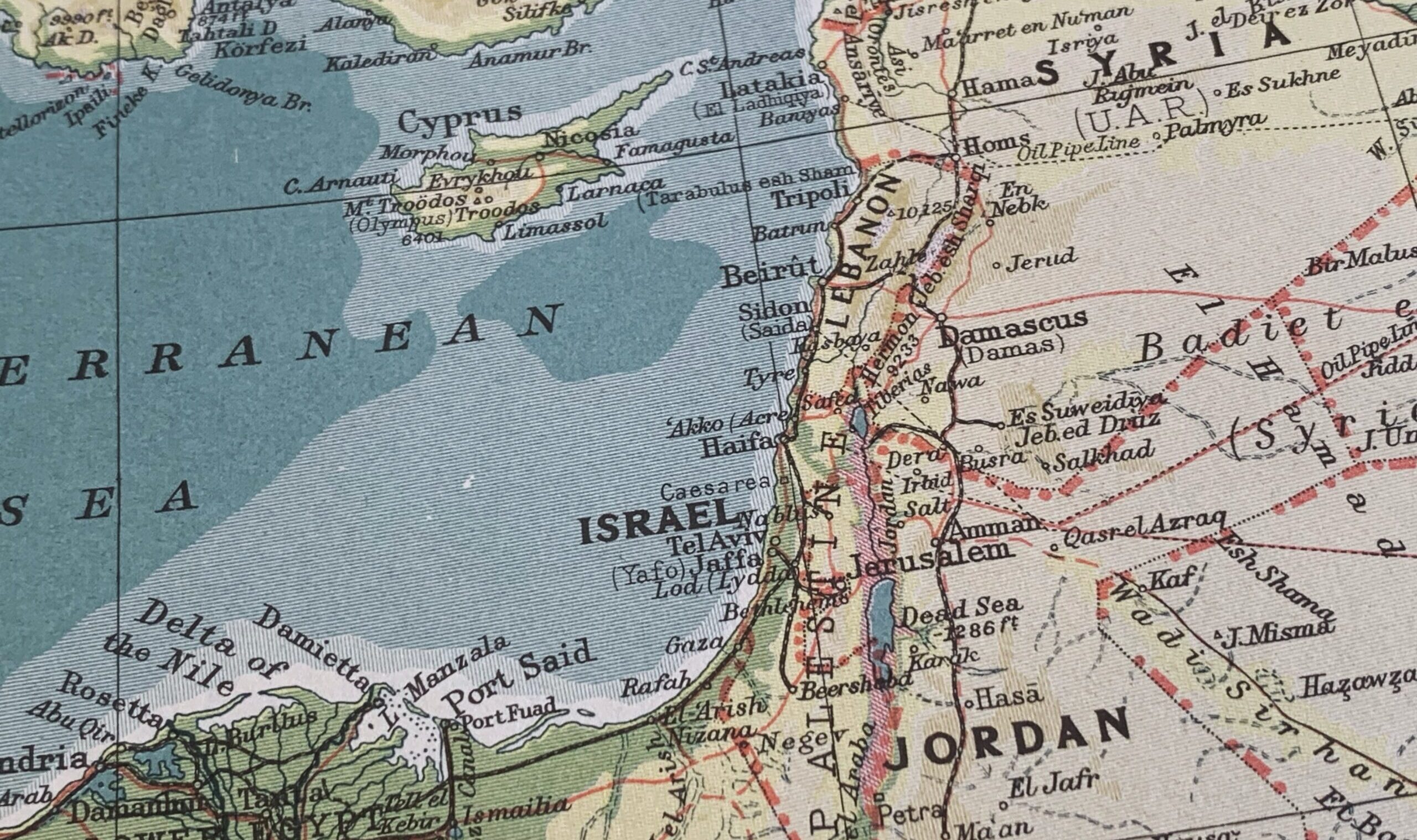
www.theamericanconservative.com
What Are Mothers For?
Books
What Are Mothers For?
Despite their best efforts, Rachel Wiseman and Anastasia Berg conclude that children—and motherhood—are good on their own terms.
Credit: image via Shutterstock
What Are Children For? by Rachel Wiseman and Anastasia Berg, St. Martin’s Press, 336 pages, June 2024
Rachel Wiseman’s mother always knew she wanted to have children. Wiseman, meanwhile, only arrived at the same conclusion after a winding personal odyssey, one that involved soul-searching “Motherhood: Is It For Me?” classes, reading a lot of “motherhood ambivalence” autofiction and feminist literature, and finally, watching her friend, Anastasia Berg, go through it. Together, Berg and Wiseman wrote What Are Children For? to parse the titular question and the uncertainty with which the majority of their millennial generation approaches it today.
Berg, an assistant professor of philosophy at the University of California, Irvine, and Wiseman, managing editor of The Point magazine, are keen to establish with their readers their progressive chops: These women are not conservative, nor are they pro-natalist, and their argument for having children does not come from a place of concern for low birth rates. They are two thoroughly modern millennial women, wrestling with how to justify having children in a world which, by their estimation, is wracked with climate concerns, financial instability and inequality, and attacks on “women’s reproductive freedom,” also known as the abortion industry. Moreover, as the popularity of motherhood ambivalence fiction attests, countless women of Berg and Wiseman’s own ilk—progressive, 30-something college graduates—are hopelessly undecided on the subject of having a family and looking for answers. (The answers in motherhood ambivalence autofiction are more or less the same: The first few weeks of motherhood are horrifying, and the rest is never discussed.)
It is not enough, then, for Berg and Wiseman to say that children are worth it for their own sake: “Having children is steadily becoming an unintelligible practice of questionable worth… the old frameworks… no longer seem to apply. And the new ones provide us with hardly any answers at all,” they write. To answer the question satisfactorily for their audience requires examining why millennials are hesitant to commit to kids, and answer the prevailing arguments of feminism, fiction, and climate change which many use to defend their ambivalence.
Climate change, however, quickly turns out to be a very unconvincing argument against children for most women. Mostly, women’s fears of family coalesce around the idea that children will directly and negatively harm their career, and by consequence their hard-earned sense of self, since job and self-identity are deeply entwined for the millennial cohort. Compounding this is the newer phenomenon of “slow love,” or the practice of protracting each phase of a romantic relationship over years—couples now commonly text for months before even making it to a first date, and move in together for years before considering engagement—as a means of caution. Of course, this slow burn doesn’t just mean women are well past their fertile prime before they think about kids, but that many find themselves several years into a relationship before discovering they want children and their partner does not. Another hurdle is plain selfishness: Several interview subjects told Berg and Wiseman “they would be more receptive to the idea of children if only they could guarantee that having kids would not jeopardize the things that really mattered to them”—such as unlimited free time, traveling, or sleeping in. As the authors note, “birth rates by and large correlate negatively with income.” For those for whom such a luxurious lifestyle is not an option, the sacrifices of child rearing are far less consequential.
The problem which modern women are encountering is at its root a problem of separating children from romantic relationships: To marry a man because you want to have his children is, somehow, convoluted and wrong, a perversion of the modern romantic trajectory. This is not a 21st century idea, but one which stems from the feminist tradition of treating motherhood as antagonistic to a woman’s full personhood. While the idea was calcified by Simone de Beauvoir, the majority of feminist thinkers treated the biological realities of womanhood as something to be overcome in order to reach complete self-determination. (Beauvoir herself recognized the transcendent qualities of motherhood, but called it a lesser form of freedom since it was not something a woman did for herself.) “That only some but not other human beings are naturally endowed with the ability to support the development of an embryo in pregnancy…has historically been understood to underlie many, probably most, of the disparities that characterize the lives of women and men,” Berg and Wiseman write. True freedom, as Shulamith Firestone and Sophie Lewis would each later argue, requires a complete separation of motherhood from womanhood.
One does not need to read about the now medically-sanctioned phenomenon of “chestfeeding” to sense that the separation of womanhood from motherhood has effectively come about. The most commonly cited reason for egg freezing, according to women surveyed, is not to delay motherhood for a career, but to “separate child bearing from relationship success or failure,” according to Berg and Wiseman. That the question of having a child is so unknowable to millennial women testifies to this fact too: How indeed is a woman to know if she wants to be a mother if she does not know what motherhood means? Wiseman describes the vocation as “coming naturally to my mother,” but by this she simply means her mom could organize schedules effectively, both those of her children and of “a rotating cast of nannies and babysitters.” Unsurprisingly, this image does not inspire Wiseman to mimic it.
“Is the capacity to give birth a source of power and meaning, or is motherhood a cumbersome, potentially torturous, and at any rate unnecessary and overrated experience?” Berg and Wiseman ask. This becomes a central question for the authors as they plumb the murky depths of autofiction, a genre characterized by fictionalized narratives of its authors’ own lives. The popular subgenre of “motherhood ambivalence literature” typically follows a single woman’s internal monologue as she muses over whether to have a child; the stories often culminate in an unplanned pregnancy or the drama of birth, and rarely consider any voice besides the author/narrator’s to be authoritative. Presumably, the point is that the author must find the answer to her question deep within herself, but as Berg and Wiseman note, “the deeper we go into the recesses of our narrators’ minds, the less we can tell what they are like and who they are.”
If motherhood is meaningful, its meaning is not found in a void. A child is created through the closest type of communion between a man and a woman, assisted reproductive technology notwithstanding. Berg and Wiseman seem to recognize this instinctively: Wiseman condemns both the motherhood ambivalence class she attends and much of the motherhood ambivalence autofiction she reads for their attempts to abstract the question of whether to have children from every external factor, such as whether a woman has a husband, or any marriage prospects whatsoever, and whether said male has any interest in creating life with her. But when it comes to her own decision to have children, the reader is given no context: Wiseman says she is pursuing IVF. With a husband, boyfriend, or anonymous sperm donor? Apparently, it doesn’t matter.
In their final philosophical argument, the authors turn to a discussion of teleology to argue that since goodness, justice, and beauty are worth pursuing unconditionally, having children cannot be morally wrong, since it may be a way of pursuing those worthy ends. This is hardly a resounding emancipation of motherhood, but it is as close as the authors come to reinforcing children as a worthy pursuit. The choice to have a child is, ultimately, up to you: It is the most “basic way to affirm our existence,” and not immoral, but also decidedly not imperative.
We are accustomed to thin gruel from secularism, even well-intentioned secularism. After all, if Kant could not overcome the impossibility of arguing for moral behavior separate from an animating fabric of morality (what does it mean to be “good”?), it is not surprising that the dicta of liberalism can barely provide grounds to argue the choice to have a child today is not immoral. Where Berg and Wiseman land is exactly as far as two cautiously pro-child liberal feminists are allowed.
Was it this argument that ultimately turned Wiseman’s head towards family making, or was it something else? In her concluding essay on motherhood, Berg seems hesitant to admit to any delight in her young daughter Lila, but the enchantment seeps through anyway. Wiseman is also discovered in these scenes, sticking and re-sticking window clings with the two-year-old.
“To have children is to allow yourself to stand in a relationship whose essence is not determined by the benefits it confers or the prices it exacts,” Berg writes. In other words, we cannot come to this decision by a pro-con list. We must instead be moved by a love for another to engage in that creative act (which mimics that of a greater Creator). “To give life to someone else is always to give away something of your own and to saddle yourself with a love—yours, theirs—that can be almost unbearable. A child’s life comes at the cost of yours,” Berg writes. She does not seem to be calling this a bad thing.
The post What Are Mothers For? appeared first on The American Conservative.














